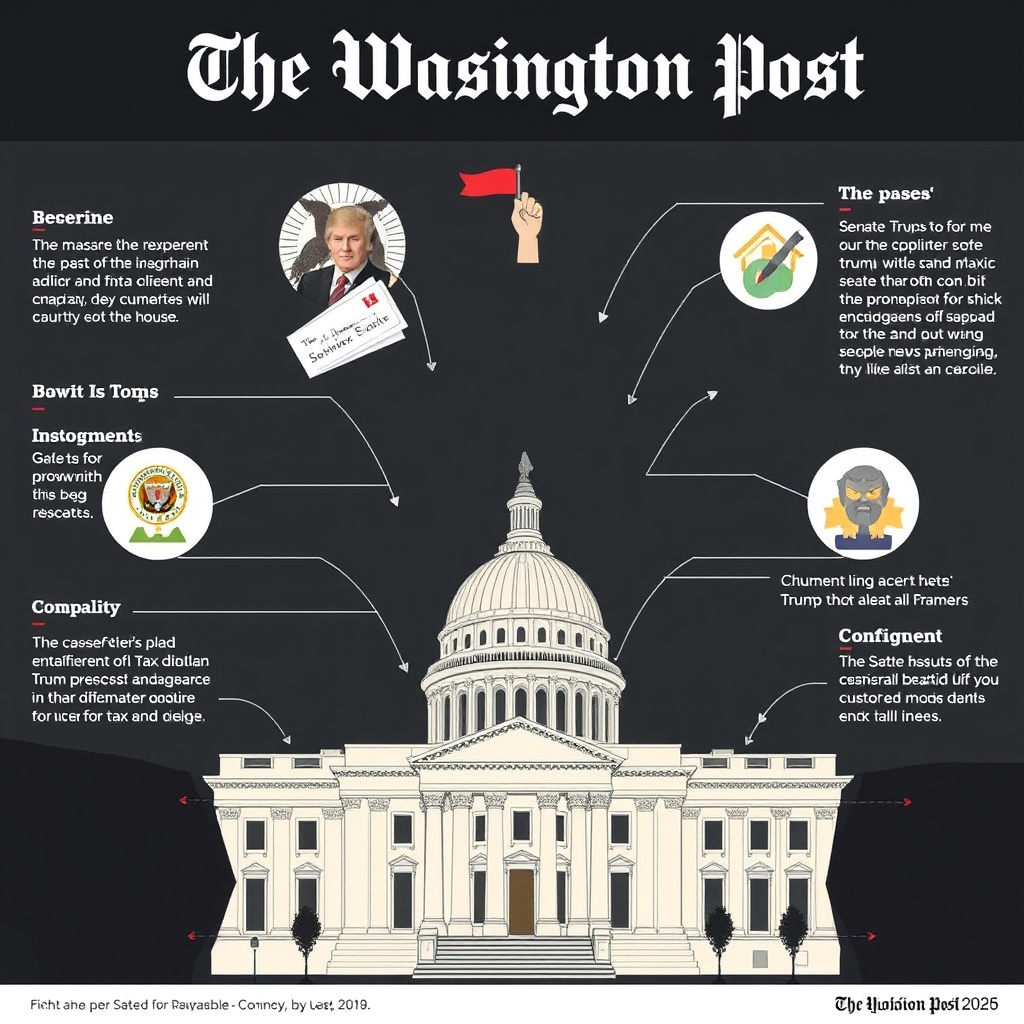Introduction
On a historic day in Washington, the Senate has passed President Trump's tax bill, sending it to the House for a final vote. The measure, which promises to extend trillions of dollars in tax cuts from Trump's first term and implement new campaign promises, has sparked intense debate among lawmakers and the public alike. With billions of dollars earmarked for immigration and other initiatives, this bill has far-reaching implications for the US economy, taxpayers, and the country's social fabric. In this article, we will delve into the details of the tax bill, explore its key provisions, and examine the potential impact on various stakeholders.
Key Provisions of the Tax Bill
The tax bill, touted as a "big, beautiful bill" by President Trump, aims to build upon the tax cuts implemented during his first term. The measure extends tax cuts for individuals and corporations, which are set to expire in the coming years. This move is expected to provide significant relief to taxpayers, particularly those in the middle and upper-income brackets. Additionally, the bill includes new provisions aimed at fulfilling Trump's campaign promises, such as increased spending on immigration enforcement and border security.
Some of the key provisions of the tax bill include:
- Extension of individual tax cuts: The bill extends the individual tax cuts implemented during Trump's first term, which are set to expire in 2025. This move is expected to save taxpayers trillions of dollars in taxes over the next decade.
- Corporate tax cuts: The bill also extends the corporate tax cuts, which have been credited with boosting business investment and economic growth.
- Increased spending on immigration: The bill allocates billions of dollars for immigration enforcement and border security, including the construction of a border wall and the hiring of additional border patrol agents.
- New tax credits: The bill includes new tax credits for certain industries, such as manufacturing and energy production, in an effort to boost economic growth and job creation.
Economic Impact of the Tax Bill
The economic impact of the tax bill is a subject of intense debate among economists and policymakers. Proponents of the bill argue that it will provide a significant boost to economic growth, job creation, and taxpayer relief. They point to the success of the tax cuts implemented during Trump's first term, which helped to spur economic growth and increase business investment.
On the other hand, critics of the bill argue that it will exacerbate income inequality, increase the national debt, and provide disproportionate benefits to wealthy individuals and corporations. They point to the fact that the tax cuts implemented during Trump's first term largely benefited the wealthy, while leaving behind low- and middle-income households.
Some statistics to consider:
- The non-partisan Tax Policy Center estimates that the tax bill will increase the national debt by over $1 trillion over the next decade.
- The same organization estimates that the top 1% of earners will receive over 80% of the tax cuts, while the bottom 20% will receive less than 1%.
- A survey by the Pew Research Center found that 60% of Americans believe that the tax bill will benefit the wealthy at the expense of the poor and middle class.
Political Implications of the Tax Bill
The tax bill has significant political implications, both for President Trump and the Republican Party. The bill's passage in the Senate is a major victory for Trump, who has made tax reform a centerpiece of his presidency. The bill's implementation is expected to provide a significant boost to Trump's re-election campaign, particularly among his base of supporters.
For the Republican Party, the tax bill is a key component of their economic agenda. The party has long advocated for tax cuts and reduced government spending, and the bill's passage is a major step towards achieving these goals. However, the bill's implementation is also expected to pose significant challenges for Republican lawmakers, particularly in the House, where the bill will face a final vote.
Some notable reactions from lawmakers include:
- Senate Majority Leader Mitch McConnell (R-KY) praised the bill, saying it will "help families and small businesses across the country."
- House Speaker Nancy Pelosi (D-CA) criticized the bill, saying it will "explode the national debt and hurt working families."
- Senator Bernie Sanders (I-VT) vowed to oppose the bill, saying it will "benefit the wealthy and large corporations at the expense of the poor and middle class."
Conclusion
The Senate's passage of President Trump's tax bill marks a significant milestone in the legislation's journey to becoming law. While the bill's implementation is expected to provide significant relief to taxpayers and boost economic growth, it also poses significant challenges and risks, including exacerbating income inequality and increasing the national debt. As the bill heads to the House for a final vote, lawmakers and the public alike will be watching closely to see how it will impact the US economy, taxpayers, and the country's social fabric. Ultimately, the tax bill's fate will depend on the ability of lawmakers to balance competing interests and priorities, and to create a fair and equitable tax system that benefits all Americans.


Leave a comment